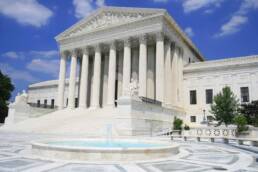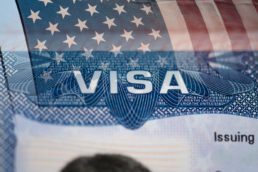In an effort to make the H-1B visa program more effective and efficient, the Department of Homeland Security (DHS) announced a new notice of proposed rulemaking. This proposed rule is also prompted by the Buy American and Hire American Executive Order, which specifically suggested reforms to the H-1B program to ensure that these visas are awarded to the most-skilled or highest-paid beneficiaries.
This proposed rule would require H-1B cap-subject petitioners to electronically register with U.S. Citizenship and Immigration Services (USCIS) during a designated registration period. Additionally, this proposed rule would place more emphasis on merit-based aspects of a petitioner. USCIS would reverse the order by which it selects H-1B petitions under the H-1B cap and the advanced degree exemption. This move is projected to increase the number of beneficiaries with a master’s degree or higher from a U.S. institution of higher education selected for an H-1B cap number, should this proposed rule take effect.
The current H-1B program allows U.S. companies to employ foreign workers in specialized occupations who posses a body of specialized knowledge and a minimum of a bachelor’s degree on a temporary basis. USCIS generally receives more petitions than required by congressional mandate. In order to reconcile the petitions received with the mandated cap, USCIS utilizes a computer-generated random selection process to select petitions that are counted towards the number of petitions needed to reach the cap. This selection process is often referred to as the H-1B lottery.
Under this proposed rule, USCIS would be able to suspend the registration process during which there are any technical challenges during the electronic registration process, on a temporary basis. This suspension provision would also permit USCIS to up-front delay the implementation of the H-1B registration process past the fiscal year (FY) 2020 cap season. This would only take effect if this delay was necessary to complete all requisite user testing and vetting of the new registration system and process. If this proposed rule is finalized, it is possible that USCIS could suspend the registration requirement if there is insufficient time to implement the electronic registration system.
This proposed rule has the potential to shake up the H-1B program. It is crucial to stay up to date with current regulations and trends for the H-1B category. If you are interested in applying for an H-1B visa or other immigration benefit, contact Berardi Immigration Law to schedule a consult to speak with a lawyer today!
Ready to have Berardi on your side?
Whether you’re a business looking to hire or a professional hoping to relocate, immigration law can be complicated. But you don’t have to do it alone. Put our experience to work for you.



